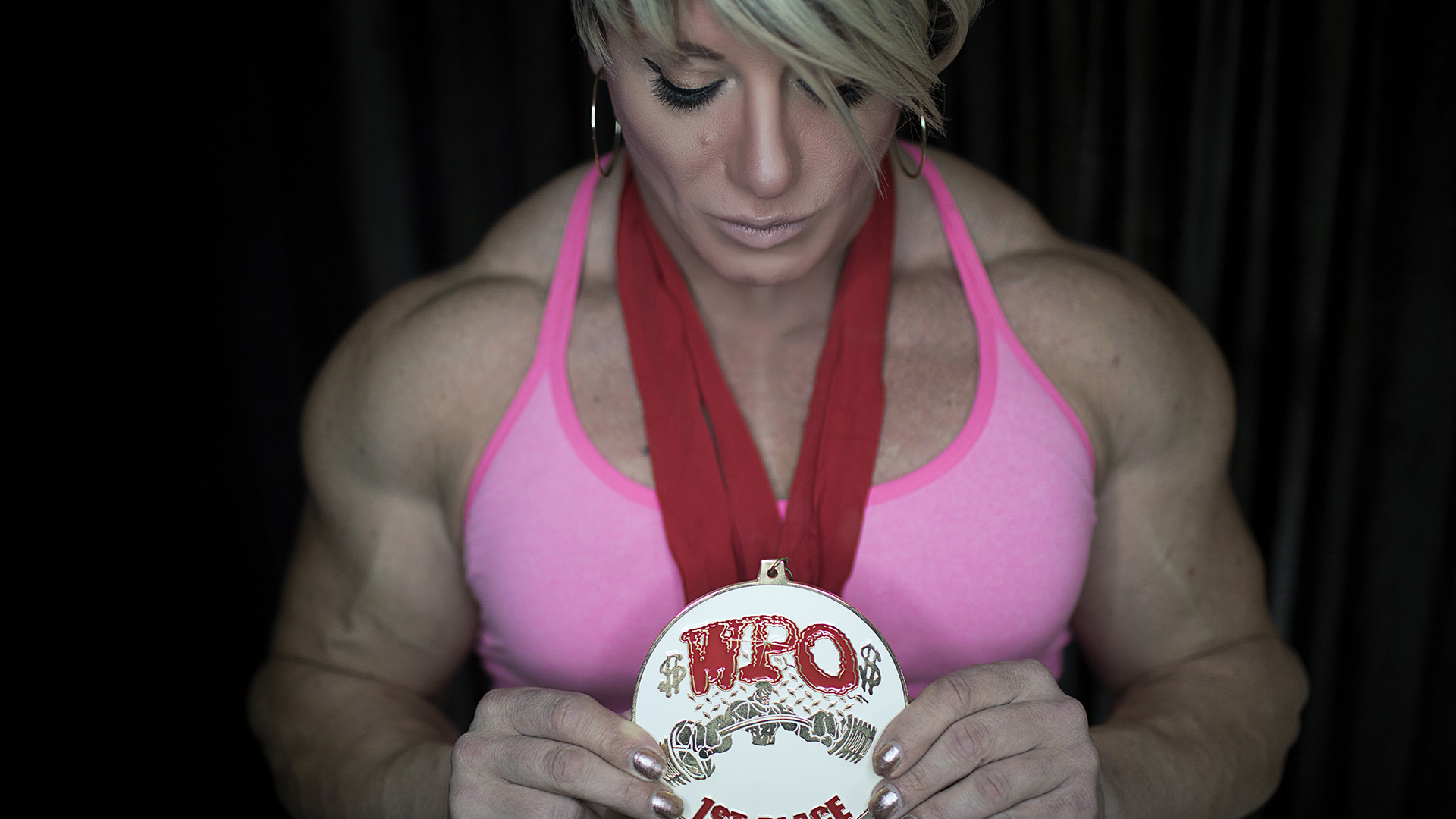‘Transformer’: Interview with Transgender Weightlifter Janae Marie
Documentary Chronicles Matt 'Kroc' Kroczaleski’s Journey from Male to Female

Janae Marie Kroczaleski was a competitive bodybuilder and professional world-class weightlifter; she went by Matt “Kroc” Kroczaleski and competed as a biological male. Kroc was a U.S. Marine and a powerlifting record-holder — an identity Janae calls the “ultimate alpha male.” But Janae knew from a young age, growing up in rural Michigan, that she was transgender. She began powerlifting in hopes that building muscle and developing a hypermasculine identity would allay her gender confusion. She got married to a woman, had three sons, and continued on the road to champion athlete.
In 2005, Janae took tentative steps, coming out as transgender to her now first ex-wife and her sons, and slowly developing a relationship with her family as Janae Marie. She created an Instagram account as Janae, describing herself as transgender and genderfluid. While her closest confidants knew her secret, she was outed publicly in 2015 by a YouTuber who found Janae’s Instagram and posted about Matt’s alter ego. Some sponsors stuck by Janae, but many fell away, concerned that her life path wouldn’t be accepted by their consumers.
Yet Janae persisted in making the transition to her female identity, eager to live a full and authentic life. She met with director Michael Del Monte, and the two collaborated on their film, Transformer, which has been honored at several film festivals. The documentary shows Janae introducing herself to family, interacting with her sons, and reshaping her identity as she experiences living in the world as a transgender female athlete.
There’s so much in your identity. How do you describe yourself, and how does Transformer show that?
Janae Kroczaleski: I am transgender, but also gender-fluid and nonbinary. I have a female gender identity, but … everything traditionally that describes being feminine doesn’t necessarily apply to me. … Sometimes I’m more feminine or more masculine, and there’s movement with that. … Prior to being out, I was seen as a real alpha male, but I would often hear from women that I was very feminine in certain ways. Even when I was trying to hide it and disguise it, people recognized it. … There were things about me that didn’t fit the image that I portrayed on the outside. I’m hyper-masculine, but I’m hyper-feminine, as well.
Why was it important to undertake this incredibly grueling transition?
JK: For me, it was about finding peace in my own body, which has never been an easy thing. My whole life I’ve lived with this conflict within me, and I felt like I needed to hide who I am. This is about trying to live a complete life and be an authentic person and have peace.
What drew you to making this film?
Michael Del Monte: Janae opened up and was honest with me about her story. And I think you can watch the film in a couple of different lights. Some people see it as a positive outcome, and some people wonder if it’s going to be a constant struggle forever. This story allows people on all ends of the spectrum, no matter what you believe about this issue, to enter into this story: people looking for their identity; people who may be skeptical about it. It’s not just an LGBT film — Janae can reach so many people beyond the LGBT world.
JK: There is a lot of positive in my story. I have an amazing relationship with my sons; they’re super supportive, and I get a lot of support from the powerlifting and bodybuilding communities. I mean, there was hate, too; more than what was expected. But I tend to be an optimist, and you have to have the attitude that one way or another, it’s going to work out. That isn’t to say that there haven’t been rough times — there are still days where I still struggle. But overall, it is a positive story, and I think the future is bright. Things are going in a good direction.
Why is this the time to make this film?
JK: This is a crucial time, because it’s a hot topic — there’s a lot being talked about, a lot of people coming out as the climate’s changing and people are feeling more comfortable with who they are. From my perspective … it’s important to be open and honest, because I know what’s it’s like to grow up and feel like it’s not okay to be who I was and to have to hide this big part of my identity. It was a struggle. The suicide rate in the transgender community is outrageous, and part of that is due to the stigma placed upon us and the way society sees us. If I can have a chance to help educate people and change those views and make it easier for the people who come behind me — I definitely feel a responsibility to do that.
MDM: I heard about Janae’s story about the same time Caitlyn Jenner was in the news, in 2015. It was exactly three years ago that I met Janae. We had a conversation going the whole night. I think the most important thing with this film is that it’s not political. We don’t have any experts, any psychologists saying what you should think, or “here’s what studies say”; it’s a story about someone who has three sons and two parents. That’s something people can relate to. … Winning the awards, particularly the audience awards — it’s shown that it’s reaching a much larger audience. We’re very honored by that.
Transformer is available on several streaming sites, including Amazon Prime and YouTube. See transformerfilm.com.



